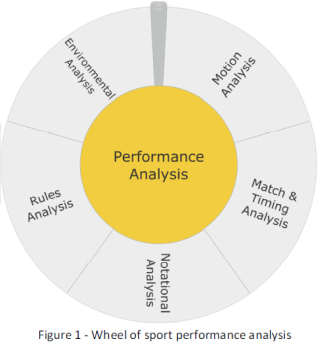The effect of weather and environmental conditions on sports has been extensively studied over the last few years ([1], [2], [3], [4]).
Based upon the studies of Lobozewicz [5] and of Kay and Vamplew [6], Pezzoli and Cristofori [7] have studied the impact of some specific environmental parameters over different sports using a particular impact
index divided into five classes. This analysis clearly shows that most of the outdoor sport activities, and in particular endurance sports, are strongly influenced by the variation of meteorological parameters.
In effect the evaluation of bio-climatological conditions and of thermal comfort in endurance sports, particularly in road cycling, has a fundamental importance not only for a proper planning of the training program
and the nutritional plan, but also for a better evaluation of the race strategy [8]. Despite these observations, the influence of meteorological and environmental conditions is often disregarded in the outdoor sport performance
assessment.
Some new researches about the Team Sport ([9], [10]), the cycling [11], the water sport [12] show us as in the sports performance analysis we need to work, as well as in the well-known areas of
Biomechanics and "Performance Analysis" ("Motion Analysis", "Match Analysis" and "Notational Analysis"), also in the "Environmental Analysis" (see Figure 1).

In this Symposium,
probably through 9 specialized oral presentation, we try to explain a the audience "why
and how" the sport performance is affected by the environmental conditions.
In fact we will try to answer a the following questions:
· Why the sport performance is affected by the environmental conditions?
· When the environmental conditions affect the sport performance?
· Where did it take place?
· What is it happened when the environmental conditions affect the sport performance?
· Who is it interesting about this topic?
· How the environmental conditions affect the sport performance?
Maximum Time for the Symposium: 120' (2 hours)
References
[1] Thornes JE. The effect of weather on sport. Weather 1977; 32:258-268.
[2] Spellman G. Marathon running an all-weather sport? Weather 1996; 51:118-125.
[3] Pezzoli A, Moncalero M, Boscolo A, Cristofori E, Giacometto F, Gastaldi S, Vercelli G. The meteohydrological
analysis and the sport performance: which are the connections? The case of the XXI Winter
Olympic Games, Vancouver 2010. Journal of Sports Medicine and Physical Fitness 2010; 50:19-20.
[4] Fleming P, Colin Y, Dixon S, Carré M. Athlete and coach perception of technology needs for evaluation
running performance. Sports Eng 2010; 13:1-18.
[5] Lobozewicz T. Meteorology in sport. Frankfurt: Ed. Sportverlag; 1981.
[6] Kay J, Vamplew W. Weather beaten: sport in the British climate. London: Ed. Mainstream Publishing;
2002.
[7] Pezzoli A, Cristofori E. Analisi, previsioni e misure meteorologiche applicate agli sport equestri. In: 10th
Congress "New findings in equine practices, Druento: Centro Internazionale del Cavallo Ed.; 2008, p.38-43.
[8] Olds TS, Norton KI, Lowe EL, Olive S, Reay F, Ly S. Modeling road-cycling performance. Journal of Applied
Physiology 1995; 78-4:1596-1611.
[9] Opatkiewicz A, Williams T, Walters C. The effects of temperature, travel and time off on Major League
soccer team performance. In: World Congress of Performance Analysis of Sport IX, Worcester; 2012.
[10] Brocherie F, Girard O, Millet GP. The influence of environmental temperature on home advantage in
Qatari International soccer matches. In: World Congress of Performance Analysis of Sport IX, Worcester;
2012.
[11] Pezzoli A, Cristofori E, Gozzini B, Marchisio M, Padoan J. Analysis of the thermal comfort in cycling
athletes. Procedia Engineering 2012; 34:433-438.
[12] Pezzoli A, Baldacci A, Cama A, Faina M, Dalla Vedova D, Besi M, Vercelli G, Boscolo A, Moncalero M,
Cristofori E, Dalessandro M. Wind-wave interactions in enclosed basins: the impact on the sport of rowing.
In: Physics of Sport. Paris: Ed. Ecole Polytechnique de Paris, in press.
|